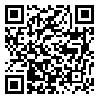
Journal of Health And Care

Volume 19, Issue 4 (winter 2018)
JHC 2018, 19(4): 242-250 |
Back to browse issues page
Download citation:
BibTeX | RIS | EndNote | Medlars | ProCite | Reference Manager | RefWorks
Send citation to:



BibTeX | RIS | EndNote | Medlars | ProCite | Reference Manager | RefWorks
Send citation to:
Bashiri H, Dehghan F, Saeedi S, MehrabiPari S, ShafieiKohnehshahri S, Abaszadeh M. Relationship between Looming Cognitive Style with Dysfunctional Attitudes, Anxiety, and Depression among Cancer Patients. JHC 2018; 19 (4) :242-250
URL: http://hcjournal.arums.ac.ir/article-1-901-en.html
URL: http://hcjournal.arums.ac.ir/article-1-901-en.html
Department of Psychology, School of Social Sciences, Razi University, Kermanshah, Iran
Abstract: (4960 Views)
Background & Aim: Cancer diagnosis causes deep emotional problems in patients and their family. The cognitive models, cognitive distortions, and dysfunctional attitudes towards conditions are some contributory factors in the development of depression and anxiety. The present study aimed to determine the correlations of looming cognitive style with dysfunctional attitudes, anxiety, and depression in cancer patients.
Methods: This study was a correlational study. 150 cancer patients referring to Imam Reza Hospital in Kermanshah were selected through the convenience sampling method in 2016. Data were collected by demographic information checklist, the Looming Maladaptive Style Questionnaire (LMSQ), the Dysfunctional Attitudes Scale (DAS-26), Depression, Anxiety and Stress Scales (DASS-42). Data were analyzed by descriptive and inferential statistics using SPSS v23.
Results: Based on the findings of the study, the mean values were 73.26±17.13 for the distorted thinking styles, 13.36±32.12 for the dysfunctional attitudes, 21.51±10.31 for anxiety and 21.66±9.58 for depression among participants. The results indicated that the looming cognitive style (LCS) was significantly correlated with the dysfunctional attitudes, anxiety, and depression among the participants. In addition, simultaneous regression was meaningful in terms of predicting the dysfunctional attitudes, anxiety, and depression based on the looming cognitive style (LCS) (p<0.05).
Conclusion: According to the findings of the study, cancer patients with high scores on looming cognitive style (LCS) had high levels of dysfunctional attitudes, anxiety, and depression. Considering, the psychological effects of these components, psychological interventions are necessary for oncology wards to reduce anxiety and depression.
Methods: This study was a correlational study. 150 cancer patients referring to Imam Reza Hospital in Kermanshah were selected through the convenience sampling method in 2016. Data were collected by demographic information checklist, the Looming Maladaptive Style Questionnaire (LMSQ), the Dysfunctional Attitudes Scale (DAS-26), Depression, Anxiety and Stress Scales (DASS-42). Data were analyzed by descriptive and inferential statistics using SPSS v23.
Results: Based on the findings of the study, the mean values were 73.26±17.13 for the distorted thinking styles, 13.36±32.12 for the dysfunctional attitudes, 21.51±10.31 for anxiety and 21.66±9.58 for depression among participants. The results indicated that the looming cognitive style (LCS) was significantly correlated with the dysfunctional attitudes, anxiety, and depression among the participants. In addition, simultaneous regression was meaningful in terms of predicting the dysfunctional attitudes, anxiety, and depression based on the looming cognitive style (LCS) (p<0.05).
Conclusion: According to the findings of the study, cancer patients with high scores on looming cognitive style (LCS) had high levels of dysfunctional attitudes, anxiety, and depression. Considering, the psychological effects of these components, psychological interventions are necessary for oncology wards to reduce anxiety and depression.
Type of Study: descriptive |
Send email to the article author
| Rights and permissions | |
 |
This work is licensed under a Creative Commons Attribution-NonCommercial 4.0 International License. |


